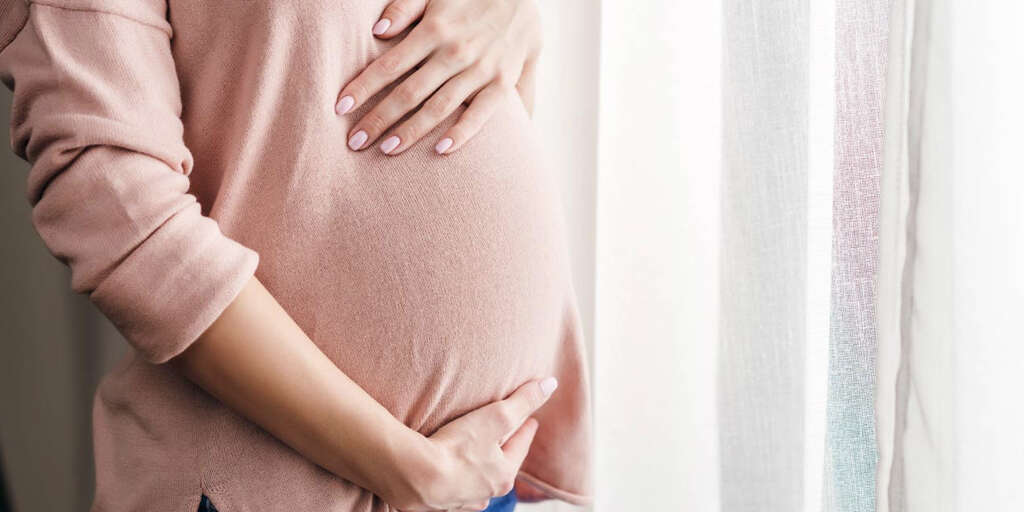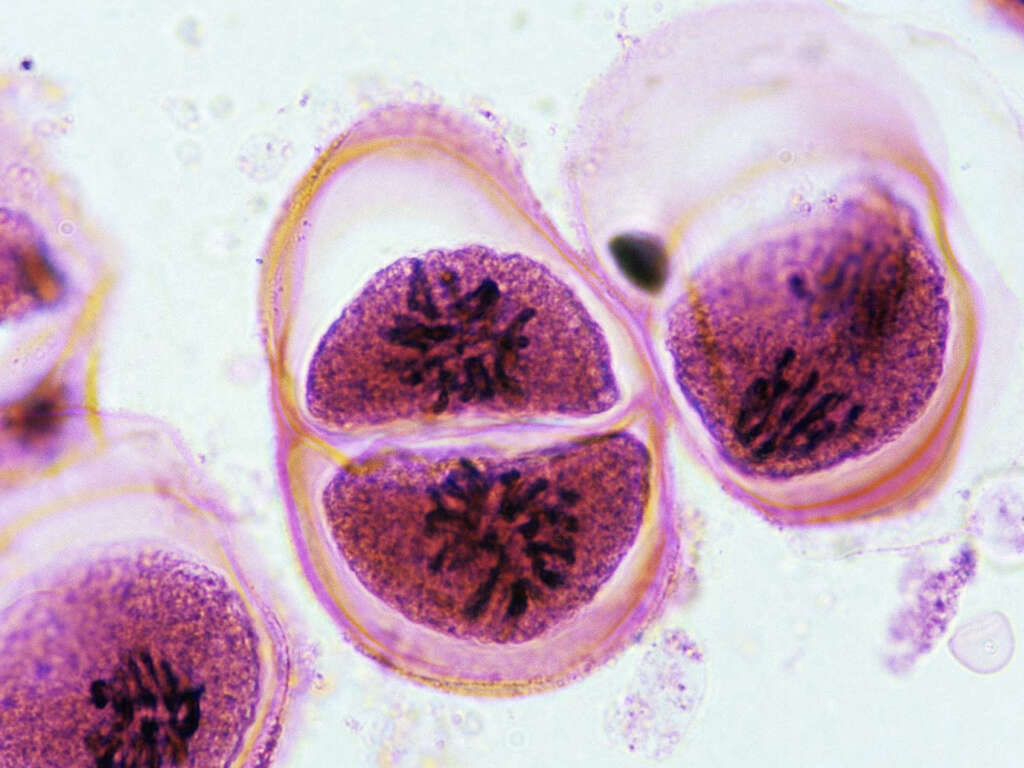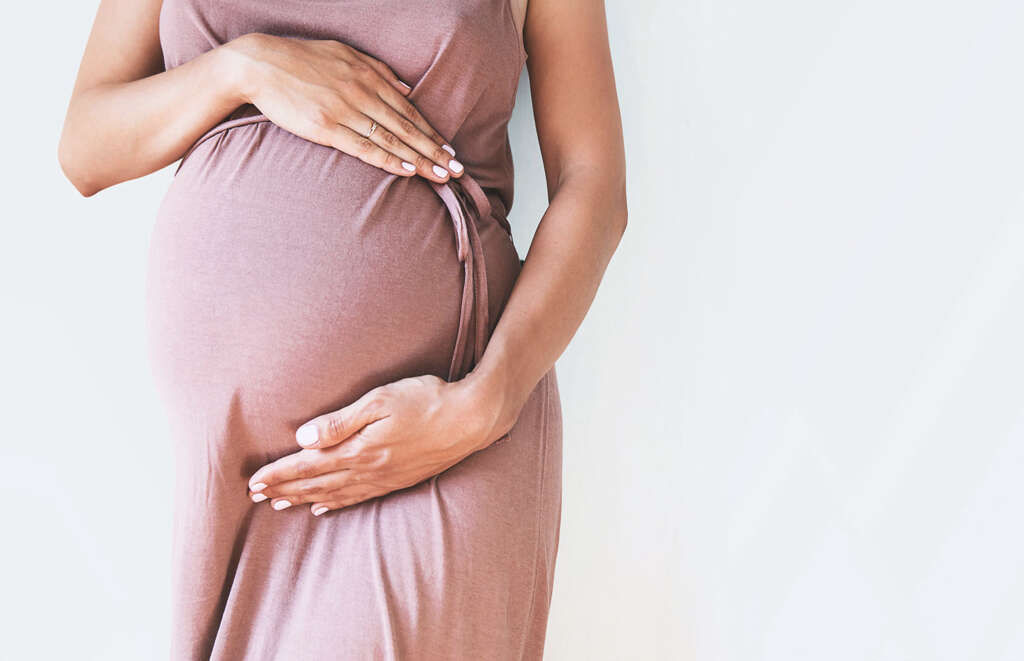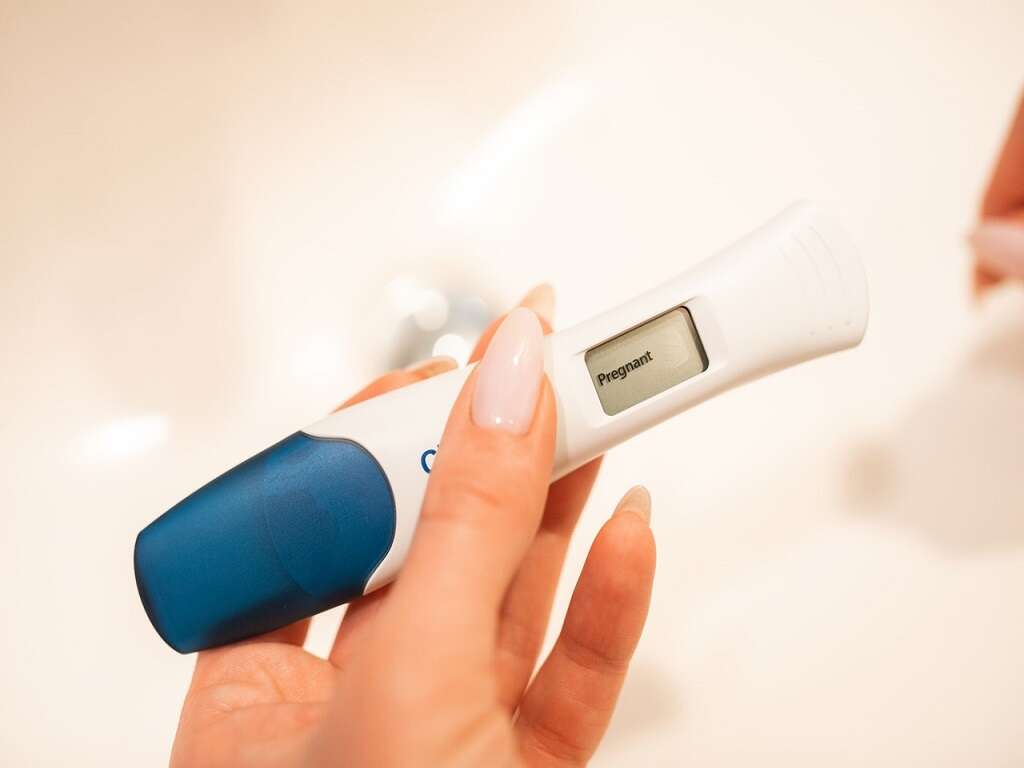First Signs of Pregnancy
Pregnancy refers to the time when a baby develops in a woman. It can end in a live birth, miscarriage, or abortion. Childbirth usually occurs around 40 weeks from the last menstrual period. Pregnancy can be divided into three trimesters with each lasting about 3 months.
In the first trimester, conception and implantation occurs. The risk of a miscarriage is also highest during this time. During the second trimester, the mother may feel the movements of the fetus. By 28 weeks, about 90% of babies can survive outside the uterus if medical care is available.

1. Statistics
In 2012, there were about 213 million pregnancies of which 23 million were in developed countries while the other 190 million were in developing countries. This translates to 133 per 1,000 women between the ages of 15 to 44 years old. It is estimated that 10% to 15% of pregnancies result in a miscarriage. In 2016, the number of maternal deaths due to complications in pregnancy was about 230,600. This is quite a significant decrease from 1990 where there were 377,000 deaths. Common causes of maternal deaths include obstructed labor, bleeding, infections, ectopic pregnancy, miscarriage complications, elective abortion, and hypertensive diseases during pregnancy. About 44% of pregnancies worldwide are unplanned with 56% of these unplanned pregnancies being aborted.

2. Early Signs of Pregnancy - Missed Period
Pregnancy symptoms vary for each individual. However, one of the most common and significant early pregnancy symptoms would be a missed period. This is especially true for those with a regular cycle. Women with a regular cycle will have their period every 25 to 30 days. Depending on the individual, it can be as short as 21 days or longer than 35.
However, their menstruation begins about the same time every cycle. When menstruation does not occur, the woman should suspect pregnancy. This can be misleading for those with an irregular menstrual cycle. Based on a survey conducted by the American Pregnancy Association, 29% of women reported their first pregnancy symptom as having a missed period.

3. Early Signs of Pregnancy - Nausea
Nausea can be described as an uncomfortable or unpleasant sensation where there is an urge to vomit. Although there is no pain, nausea can become debilitating if prolonged as it causes discomfort at the back of the throat, upper abdomen, and chest. In pregnancy, nausea with or without vomiting is more commonly known as morning sickness.
This term is a misnomer as it can occur at any time and usually begins a month after becoming pregnant. Some women may even experience it even earlier while some may not have it at all. Pregnancy hormones have been thought to be the cause of nausea. A poll on pregnancy symptoms by the American Pregnancy Association showed that 25% of women experienced nausea as the first sign of pregnancy.

4. Early Signs of Pregnancy - Breast Changes
During pregnancy, the mother undergoes physiological changes. A survey found that 17% of women reported breast changes as their first sign of pregnancy. During the first trimester, the woman may experience discomfort and tenderness in the breast. The mother may experience tingly, heavy, or sore breasts as early as 1 to 2 weeks after conception.
Some may also complain that the nipples are painful or sensitive to touch. The changes are thought to be due to the increasing hormone levels in the body which causes more blood flow to the breast tissue. As the pregnancy progresses, the breasts enlarge and can go up to two cup sizes larger. The growth causes the skin to stretch and can lead to itchiness. Some women also notice the appearance of prominent blue veins.

5. Early Signs of Pregnancy - Spotting
Spotting or light bleeding is also a common sign during the early stages of pregnancy. About 20% of women reported spotting during the first 12 weeks of their pregnancy. This bleeding is usually lighter than normal menstrual period and the color can range from pinkish to brownish. Although spotting is a concern, it should not cause panic as many women who experience spotting have a healthy pregnancy and baby.
Spotting should be distinguished from bleeding. It occurs during the first trimester and only results in a few drops of blood on the underwear. The blood should not be heavy enough to cover a panty liner. When in doubt, always seek professional care. Spotting can occur due to implantation where the fertilized egg attaches to the uterine lining or because of a cervical polyp that bleeds as estrogen level increases.

6. Early Signs of Pregnancy - Fatigue
Fatigue is a sudden or gradual feeling of tiredness. It is considered normal if it occurs after prolonged physical or mental activity. Physical fatigue occurs when the muscles are temporarily unable to maintain optimal physical performance while mental fatigue refers to transient decrease in maximum cognitive performance. It can present as excessive sleepiness or lethargy.
Fatigue is usually alleviated by rest. Fatigue is often reported as an early sign of pregnancy even as early as the first week after conception. During pregnancy, it is common to feel tired and many mothers increase the time they spend resting or sleeping. Regular exercise is recommended as it may help to decrease fatigue.

7. Early Signs of Pregnancy - Frequent Urination
Frequent urination occurs when there is a need to urinate more than usual. In women, the commonest cause of increased urinary frequency is a urinary tract infection. This issue is often associated with urinary urgency where the urge to urinate is sudden. Pregnant women often experience the need to urinate more often.
This occurs as the blood in the body increases, resulting in the kidneys having to process more fluid. The increasing hormones may also play a role in frequent urination. Accidental leakage may also occur. To resolve this issue, pregnant mothers may plan their bathroom trips ahead to avoid incontinence. This usually begins around 6 to 8 weeks after conception. The need to urinate will increase even more as the growing baby presses on the bladder.

8. Early Signs of Pregnancy - Food Cravings
Pregnant women may also experience food cravings early in their pregnancy. The foods they crave are generally rich in fat and high in calories. Although the exact reason is unclear, it is thought to be attributed to hormones. Pregnant women may have lower dopamine (feel good) levels.
However, with the ingestion of foods high in fat and calories, often comfort foods, it raises the dopamine levels. This causes the women to seek out foods that they love. Another theory is that the body is craving for nutrients they need for their pregnancy. For example, cravings for salt may indicate that there is magnesium deficiency, sweet cravings indicating calorie or carbohydrate deficiency, dairy cravings for calcium deficiency, and more.

9. Early Signs of Pregnancy - Food Aversions
Food aversions, like cravings, should also be due to hormonal changes. When a woman becomes pregnant, the human chorionic gonadotropin (hCG) hormone levels increases rapidly. This rapid increase in hCG is thought to contribute to symptoms such as food cravings, nausea, and food aversions.
Food aversion can occur in early pregnancy. Researchers have postulated that it may be a mechanism that protects the new pregnancy against potentially harmful elements. Food aversions are most common in the first trimester. Throughout the pregnancy, new aversions can develop. Some of the common aversions include eggs, milk, meat, garlic, onions, spicy foods, tea, and coffee. Some women even have aversions to foods they use to love.

10. Early Signs of Pregnancy - Mood Swings
Mood swings are common in early pregnancy. Pregnant women, especially those who will be mothers for the first time, will face some anxiety during pregnancy. They may be excited about their child, anxious if they will be a good parent, stressed, and overwhelmed. Pregnancy is an event that is life changing.
Besides all these thoughts, mood swings can also be attributed to changes to the body due to increasing hormone levels. Pregnant women also often feel fatigue and tired. This can cause irritability. Mood swings are most common in the first trimester between 6 to 10 weeks. It is different for every individual. There can be highs and lows. Although mood swings are normal, women who experience prolonged durations of sadness and struggle with depression should seek professional medical advice.












